If trees could talk, what stories could they tell us?
Species of trees like yews, oaks and redwoods can live for thousands of years. That means there are trees alive today which have borne witness to some of historyÔÇÖs most significant events. They were present through wars and disasters, political and social change.
In the United States, these historic trees are known as ÔÇÿWitness TreesÔÇÖ and they receive protection and preservation as part of the National Park ServiceÔÇÖs ÔÇÿWitness Tree Protection ProgramÔÇÖ. Other countries have their own ways of honouring and protecting noteworthy trees.
Here are just a few trees which were right there among it as history unfolded.
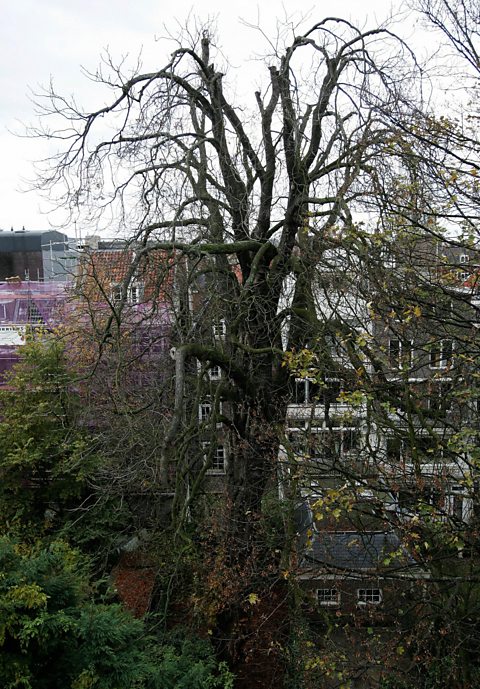
Anne FrankÔÇÖs Tree
From 6 July 1942 to 4 August 1944, a young Jewish girl called Anne Frank hid from Nazi persecution in a secret annex within a building in Amsterdam. Unable to leave, her glimpses of the outside world came from looking out of an attic window which wasnÔÇÖt blacked out.
Famously, Anne wrote a diary detailing her thoughts and experiences during this period, and on three occasions, she mentions the chestnut tree outside her window. On 23 February 1944, she wrote about looking up at the blue sky from her favourite spot on the floor, seeing the bare chestnut tree covered in shining raindrops and feeling that ÔÇ£as long as this exists, and it certainly always will, I know that then there will always be comfort for every sorrow, whatever the circumstances might be.ÔÇØ
In April and May 1944, she wrote of how the chestnut tree was beginning to bloom, turning green as it became full of leaves. Just a few months later, Anne and her family were discovered by the Nazis, and they were taken to Auschwitz. Anne and her sister Margot were later moved to the Bergen-Belsen concentration camp, where they would die of A group of infectious diseases caused by bacteria spread by fleas, lice and similar. just weeks before it was liberated in 1945.
Speaking in 1968, Otto Frank (AnneÔÇÖs father, who survived the Holocaust) spoke of ÔÇ£how important the chestnut tree was for her, when I think that she never showed any interest in nature. Still, she longed for it when she felt like a bird in a cage. Only the thought of the freedom of nature gave her comfort.ÔÇØ
The white horse chestnut tree was already old when Anne observed it from her hiding spot, and in 2005 it was found to be suffering from a fungus disease. In anticipation that the tree would not survive for many more years, the Anne Frank House were given permission to take chestnuts from the tree to germinate and grow into saplings. These saplings have since been donated to organisations across the world, often places with an association with Anne, such as schools named after her.
Notable locations include:
- The United Nations Headquarters in New York, US and the Capitol Building in Washington D.C.
- Yad Vashem, IsraelÔÇÖs official memorial to victims of the Holocaust
- 150 saplings in the Amsterdamse Bose Park in Amsterdam
In the UK, Anne Frank trees can be found at the Batsford Arboretum in Gloucestershire, Lister Park in Bradford and Highbury Fields in Islington.

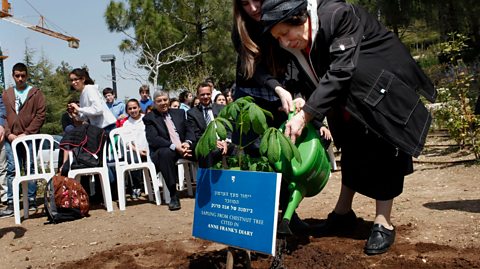
The Ankerwycke Yew
At between 1,400 and 2,500 years old, the ancient Ankerwycke Yew is thought to be one of the oldest living trees in the UK. As well as being old, itÔÇÖs huge - the diameter of the trunk is around 26 feet (8 metres). Today, it stands in the ruins of St MaryÔÇÖs Priory, an old Benedictine nunnery.
Whilst nothing can be confirmed, there are several stories which swirl around this tree.
It may have been beneath its leaves that King John agreed to the Magna Carta on 15 June 1215, an agreement between him and a group of barons that would alter the way in which England was ruled. Changes were made to rules around land ownership, taxes and legal rights, all with the aim of reducing the power of the monarchy. For example, the king could no longer raise new taxes without the agreement of the barons, and anyone accused of a crime had the right to a fair trial.
Alternatively, this hugely important event in political history might have taken place a stoneÔÇÖs throw away across the River Thames at a place known as Runnymede. There is also a suggestion that it was under the Ankerwycke Yew that King Henry VIII began courting Anne Boleyn in the 1530s.
In 2002, the Ankerwycke Yew was named as one of fifty ÔÇÿGreat British TreesÔÇÖ by the Tree Council.
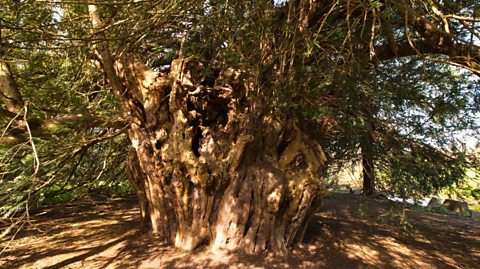 Image source, National Trust/Brendan Burbage
Image source, National Trust/Brendan BurbageThe trees of the American Civil War battlefields
Across the many battlefields of the American Civil War (1861-1865), numerous trees remain which survived the heavy fighting.
One such tree is the White Oak Tree of Manassas National Battlefield Park, Virginia, which survived two Civil War battles. The First Battle of Manassas took place on 21 July 1861, close to the tree and Stone Bridge over which the Union troops retreated at the end of the battle. The bridge would later be destroyed by Confederate troops and then again by the defeated Union army following the Second Battle of Manassas in 1862.
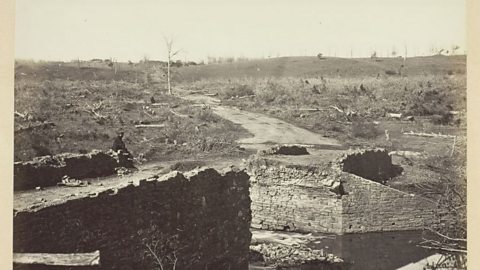
The army photographer George N. Barnard took a photo of the tree in March 1862, alongside the ruins of the bridge and the devastated surrounding landscape. The famous Stone Bridge has since been rebuilt.
Another tree, a swamp white oak known as the Sickles Oak, provided shelter for Union troops under the command of Major General Daniel E. Sickles during the Battle of Gettysburg on the afternoon of 2 July 1863. Sickles would later defy a direct order and marched his men into battle, losing his right leg to a cannonball in the process.
There are hundreds of other Civil War era witness trees, but many will not be formally identified until they eventually fall and can be dated without risking damage to the living tree.
This article was published in November 2023
The history hidden in place names
Discover how to spot somewhere that was once inhabited by the Celts, Romans, Anglo-Saxons, Vikings or Normans.
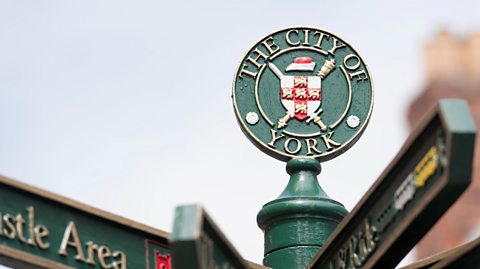
Quiz: Can you identify a tree by its leaves?
Do you know your oak from your yew? Turn over a new leaf and learn about trees!
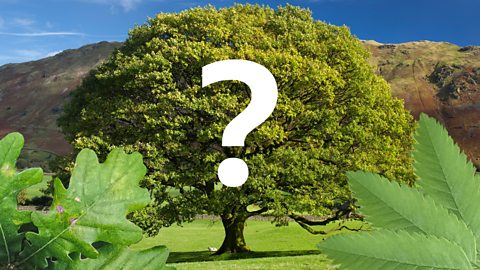
From lochs to fens: How well do you know the geography and climate of the UK?
Discover how much you really know about the UK's geography and climate with this tricky ┤¾¤¾┤½├¢ Bitesize quiz.
